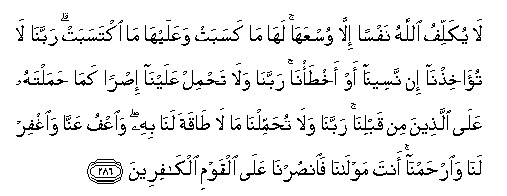In the Name of Allah, the Gracious, the Merciful
Excerpt from Chapter 3 of QUR’ AANIC STUDIES – A Modern Tafsir:
92. Lan tanaloo albirra hatta
tunfiqoo mimma tuhibboona wama tunfiqoo min shay-in
fa-inna Allaha bihi AAaleemun
92. Never shall
you attain to righteousness unless you spend from what you love. And Allah is
indeed aware of anything you spend.105 to 107
105. Man loves wealth. He thinks it could
bring him comfort in this worldly life. His thoughts do not go beyond, to the
life in the Hereafter. But Islam teaches him that this worldly life is
temporary and only a test; it is the everlasting life in the Hereafter that
really matters. And the Verse 92 here tells us that unless we overcome our love
of wealth by spending from it, we cannot be righteous enough to deserve
comfortable lives in the Hereafter.
106. We can of course incur necessary
expenses, from our own wealth, on our own selves. But we cannot waste the
wealth on our own selves beyond our genuine needs. Allah would be aware of
it, if and when we do it. And Verse 2:215 tells us on whose genuine needs to spend our wealth that
is in excess of our own individual needs.
107. Man loves other things also, besides
wealth. He loves his spouse and children, for example. Verse 92 here could be
extended in its implications to cover these other objects of love too. Our love
for our own children, for instance, should not come in our way of standing
firmly for justice in any matter involving them.
Friday, the 29th
December 2017.






